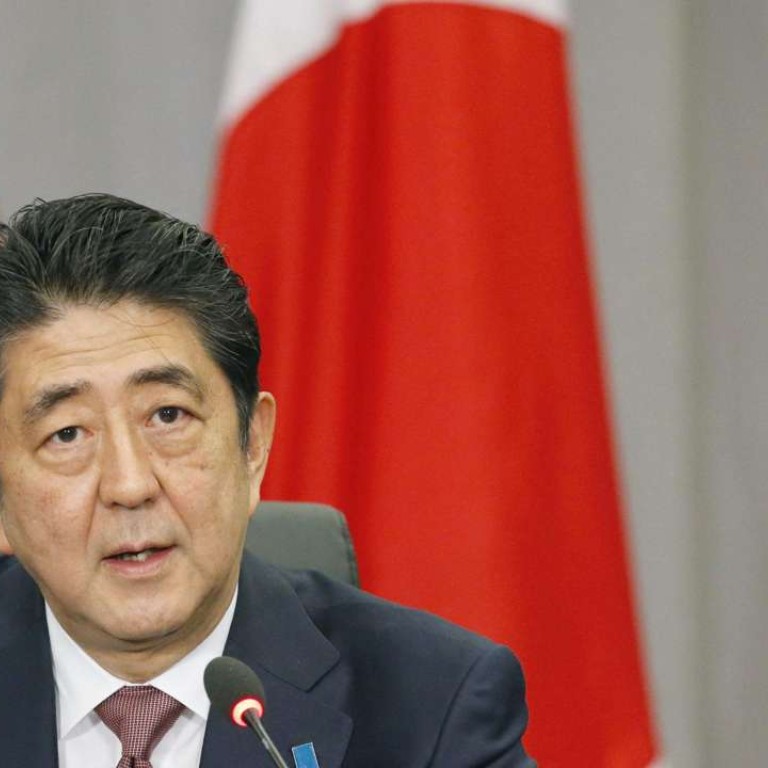
Abe may never have a better chance of pushing through constitutional change
Bulk of Japan’s imported energy reaches it via the South China Sea, meaning Asia’s arguably most contentious issue is firmly on prime minister’s agenda
Fresh from his electoral triumph on 10 July, Japan’s Prime Minister Shinzo Abe will likely seek a national debate on reforming the Japanese constitution.
Ironically, though China is opposed to any changes to Japan’s constitutional commitment to pacifism, rhetoric from China may bolster Abe’s case to a Japanese people currently divided on the issue.
China will view its assertive rejection of the 12 July South China Sea ruling by the Permanent Court of Arbitration (PCA) in The Hague as justified but the language used could easily be co-opted by Tokyo to push the case for the very constitutional reform that Beijing wishes to avoid seeing implemented.
“Japan is not a state directly involved in the South China Sea issue, and thus should exercise caution in its own words and deeds, and stop hyping up and interfering,” Chinese Premier Li Keqiang said on 15 July, according to Xinhua, in response to Tokyo urging China to respect the PCA decision.
That’s a diplomatic way of saying butt out.
But Japan does have a direct interest because the bulk of its imported energy reaches it via the South China Sea.
Japan cannot afford to see territorial disputes in the South China Sea escalate to a point where freedom of navigation becomes impaired and puts at risk Japan’s seaborne energy supply lines.
And even if Japan has no territorial claims in the South China Sea, it does have them in the East China Sea where its assertion of sovereignty over the Diaoyu islands, known in Japan as the Senkakus, is rejected by Beijing.
Those in favour of dropping Japan’s commitment to pacifism, embodied in Article 9 of the Japanese constitution, could easily spin a narrative that employs China’s own stand on existing territorial disputes to support the arguments for constitutional reform in Japan itself.
This is not to say that China should back off from what it believes are its rights, but merely to recognise that pressing those arguments might also have other and unwelcome consequences.
And, in this regard, no-one should also underestimate Abe’s own desire to reform Article 9 which, in part, reflects his personal commitment to fulfil the aims of his grandfather Nobusuke Kishi, himself Japan’s Prime Minister in the late 1950s, who argued even then for constitutional reform and rearmament.
In February 2016, Abe called for reform of Article 9 arguing action was needed to resolve the contradiction between the fact that Japan had Self-Defence Forces and the constitutional ban on Japan maintaining armed forces.
If Japan were to actually rearm that would entail a huge fiscal stimulus by the Tokyo government benefiting both Japanese and, in all likelihood, American manufacturers
US Republican Presidential nominee Donald Trump has not been shy in pointing out the contradiction in words that might encourage those in Japan seeking change.
“If somebody attacks Japan, we have to immediately go and start World War III, okay? If we get attacked, Japan doesn’t have to help us,” Trump said at a campaign speech in late 2015. “Somehow, that doesn’t sound so fair.”
It goes without saying also that if Japan were to actually rearm that would entail a huge fiscal stimulus by the Tokyo government benefiting both Japanese and, in all likelihood, American manufacturers while simultaneously reducing some of the military costs currently incurred by the United States in the area.
It would also surely elicit a response from China, in the form of even higher military expenditure.
That sounds like a recipe for a regional arms race to which other jurisdictions, such as South Korea and Taiwan, might feel the need to respond.
None of this is inevitable and indeed, given the strength of Japanese popular opposition to the abandonment of Article 9, the Abe government might well decide that their efforts are better focused on revitalising Japan’s economy rather than getting bogged down in controversial constitutional reform.
Nevertheless, the parliamentary mathematics suggests Abe may never have a better chance of pushing through constitutional change than now. The question is whether he will seek to expend political capital on the issue.
That brings the argument full circle.
If Abe does decide to try and abolish Article 9, which China would understandably not like, the Japanese people will have to approve that change by referendum and thus far seem unpersuaded.
Yet the more China seeks to assert what it sees as its rights in both the East and South China Seas, the greater the likelihood the Japanese people might be persuaded that their own best interests lie in changing Article 9.
China might end up inadvertently helping to realise the very constitutional change in Japan that it seeks to avoid seeing occur.

